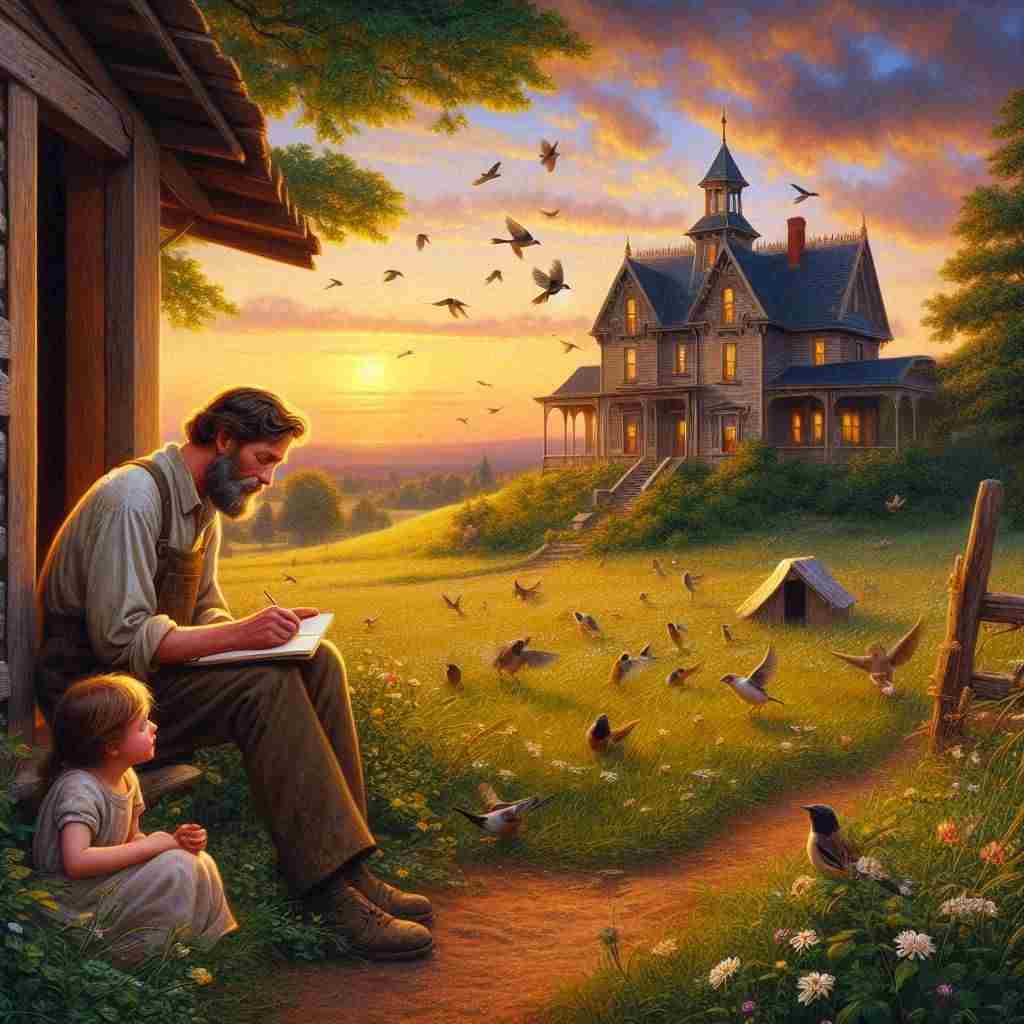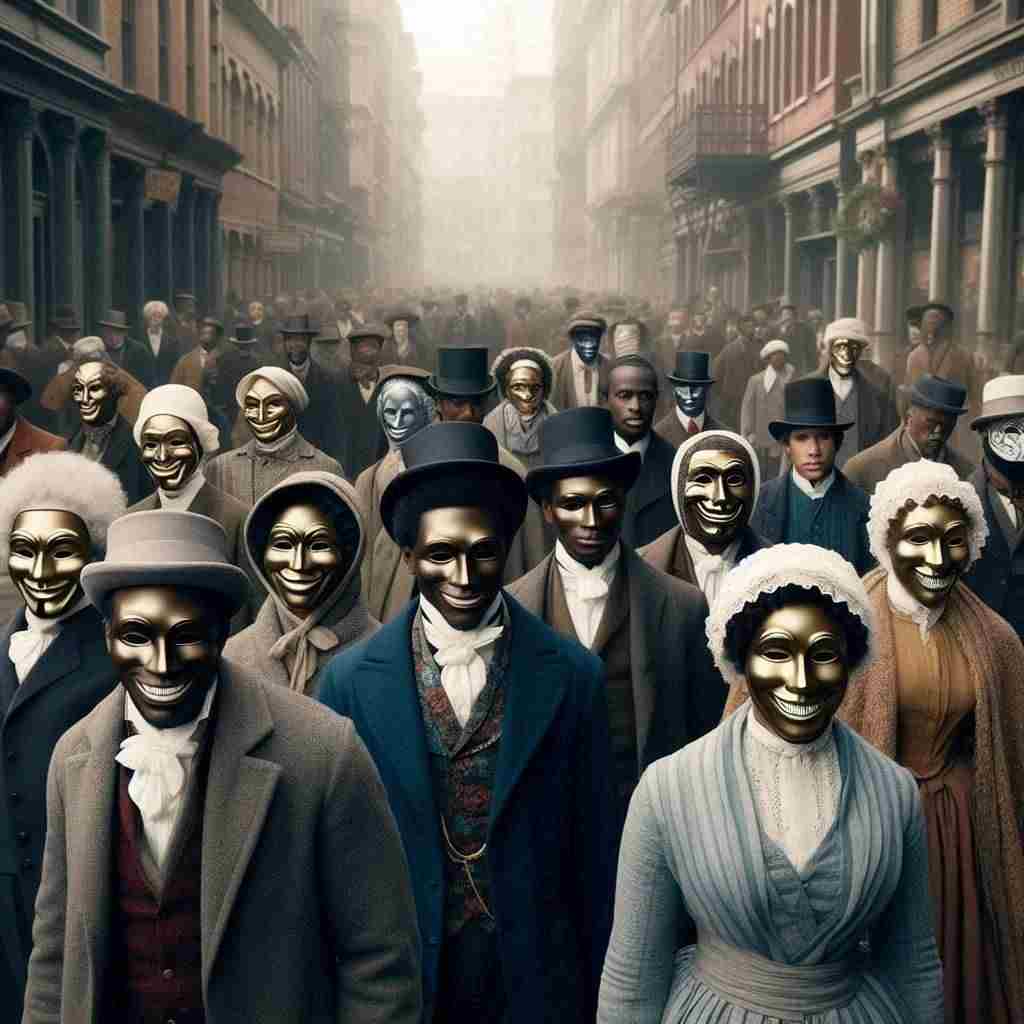2 Poems by Paul Laurence Dunbar
1872 - 1906
Paul Laurence Dunbar Biography
Paul Laurence Dunbar, born on June 27, 1872, in Dayton, Ohio, stands as a towering figure in American literature, particularly renowned for his poetry that captured the nuances of African American life in the late 19th and early 20th centuries. The son of former slaves, Dunbar's rise to literary prominence was as remarkable as it was challenging, set against the backdrop of a nation still grappling with the aftermath of the Civil War and the complexities of race relations.
Dunbar's parents, Joshua and Matilda, instilled in him a love for learning and literature from an early age. His mother, unable to read herself, would hold books and pretend to read stories to young Paul, fostering his imagination and passion for words. This early exposure to storytelling, coupled with the rich oral traditions of African American culture, would later influence Dunbar's unique style, which seamlessly blended standard English with dialect verse.
As a student at Dayton's Central High School, Dunbar's talent for writing began to flourish. He was the only African American student in his class, and despite facing racial prejudice, he excelled academically and socially. It was during this time that Dunbar began to publish his poems in the school newspaper and was elected as president of the school's literary society. His first collection of poetry, "Oak and Ivy," was published in 1892 when he was just 20 years old, marking the beginning of a prolific literary career.
Dunbar's work gained wider recognition after a chance meeting with Frederick Douglass in 1893. Impressed by the young poet's recitation, Douglass referred to Dunbar as "the most promising young colored man in America." This endorsement helped propel Dunbar into national prominence, leading to increased opportunities for public readings and publications.
The publication of "Majors and Minors" in 1895 brought Dunbar critical acclaim, particularly after a favorable review by William Dean Howells in Harper's Weekly. Howells' praise, while well-intentioned, focused primarily on Dunbar's dialect poems, inadvertently pigeonholing him as a "dialect poet" for much of his career. This categorization was a source of frustration for Dunbar, who viewed his work in standard English as equally important and reflective of his artistic vision.
Dunbar's poetry is characterized by its musicality, emotional depth, and keen observations of human nature. His dialect poems, such as "When Malindy Sings" and "The Party," capture the rhythms and cadences of African American speech, preserving a linguistic heritage that was often overlooked or denigrated by mainstream literary circles. However, it is in his standard English poems, like "We Wear the Mask" and "Sympathy," that Dunbar's mastery of form and his profound insights into the African American experience are most evident.
"We Wear the Mask," perhaps Dunbar's most famous poem, delves into the psychological toll of living in a society that forces individuals to hide their true selves behind a facade of contentment. The poem's exploration of double consciousness predates W.E.B. Du Bois' similar concept by several years, highlighting Dunbar's role as a pioneering voice in articulating the complexities of African American identity.
Dunbar's literary output was not limited to poetry. He wrote novels, short stories, and essays that further explored themes of race, identity, and the human condition. His novel "The Sport of the Gods" (1902) is particularly noteworthy for its unflinching portrayal of urban African American life and the devastating effects of racism on individuals and families.
Despite his literary success, Dunbar's personal life was marked by struggle and tragedy. He married Alice Ruth Moore, a fellow writer and teacher, in 1898, but their relationship was tumultuous and ended in separation. Dunbar also battled alcoholism and tuberculosis, which would ultimately claim his life at the young age of 33 on February 9, 1906.
Dunbar's influence on American literature, particularly African American literature, cannot be overstated. He paved the way for the Harlem Renaissance writers who would follow, demonstrating that African American voices and experiences were worthy of literary exploration and celebration. His work influenced poets like Langston Hughes and Maya Angelou, who cited Dunbar as a significant inspiration.
In the years since his death, Dunbar's legacy has continued to grow. Scholars have reevaluated his work, recognizing the complexity and artistry of both his dialect and standard English poetry. His ability to capture the duality of African American life - the public face and the private reality - remains a powerful testament to his observational skills and empathy.
Paul Laurence Dunbar's life and work serve as a bridge between the 19th and 20th centuries, between the world of slavery and emancipation and the nascent civil rights movement. His poetry, with its blend of traditional forms and innovative language, continues to resonate with readers today, offering insights into the universal human experience while also providing a vivid portrait of African American life at a crucial juncture in history. Dunbar's enduring legacy is a testament to the power of art to transcend time and social barriers, speaking to the hearts and minds of readers across generations.
This text was generated by AI and is for reference only. Learn more
Username Information
No username is open
Unique usernames are free to use, but donations are always appreciated.
Quick Links
© 2024-2025 R.I.Chalmers (V2Melody).

All music on this site by R.I.Chalmers (V2Melody) is licensed under a Creative Commons Attribution-NonCommercial 4.0 International License.
Attribution Requirement:
When using this music, you must give appropriate credit by including the following statement (or equivalent) wherever the music is used or credited:
“Music by R.I.Chalmers (V2Melody) – https://v2melody.com”
Support My Work:
If you enjoy this music and would like to support future creations, donations are always welcome but never required.
Donate


